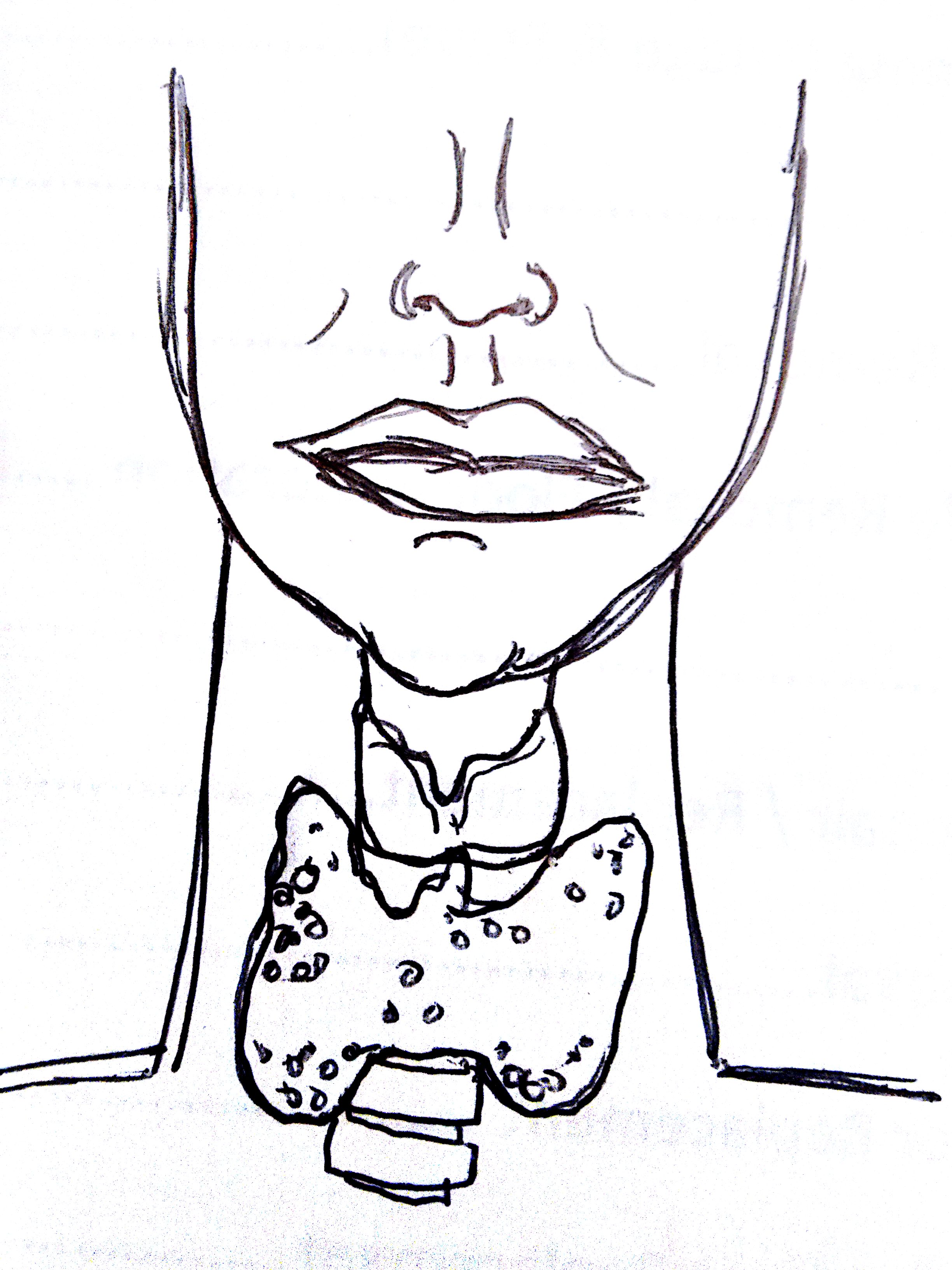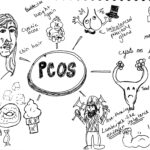 I have some amazing news—my patient is better. Whereas only a few short months ago, he was plagued by inexplicable weight gain, debilitating fatigue, depressed mood—convincing him he must be suffering from clinical depression—a sore throat and an inability to regulate his temperature, now he feels normal. A few months ago, his lab results indicated a serious and spiralling case of autoimmune thyroid disease. Now the lab results shows markers that are completely within the normal limits. My patient got to where he is now naturally—he did not take a single medication. His body was unleashing an aggressive attack against his thyroid gland under a year ago. Now, his thyroid is healthy, happy and working normally. My patient is back to work, exercising, traveling, feeling happy, fulfilled and creative. He is no longer suffering.
I have some amazing news—my patient is better. Whereas only a few short months ago, he was plagued by inexplicable weight gain, debilitating fatigue, depressed mood—convincing him he must be suffering from clinical depression—a sore throat and an inability to regulate his temperature, now he feels normal. A few months ago, his lab results indicated a serious and spiralling case of autoimmune thyroid disease. Now the lab results shows markers that are completely within the normal limits. My patient got to where he is now naturally—he did not take a single medication. His body was unleashing an aggressive attack against his thyroid gland under a year ago. Now, his thyroid is healthy, happy and working normally. My patient is back to work, exercising, traveling, feeling happy, fulfilled and creative. He is no longer suffering.
The Thyroid Gland
The thyroid gland is an important organ. Shaped like a butterfly and located right below the Adam’s Apple on the front of the neck, it has a variety of essential, life-sustaining tasks. The thyroid is responsible for maintaining our body’s metabolic function. It keeps our cells busy, and allows us to convert our food and fat energy into important metabolic functions. It regulates our hormones, cardiovascular system, skin and hair health, contributes to mood, regulates body temperature, balances estrogen and progesterone in females, thereby contributing to healthy fertility, and helps with the functioning of the immune system.
However, as important as the thyroid gland is, it’s also the body’s “canary in the coal mine”, susceptible to the smallest changes in our health status. Physical, mental and emotional stress can contribute to declines in healthy thyroid functioning, as can exposure to environmental toxins, inflammation and deficiencies in important nutrients such as iron, zinc, selenium and iodine. Because of the thyroid’s senstivities, however, we can use impending thyroid symptoms as signs of overall body imbalance. Therefore, treating thyroid symptoms at their root is important for restoring our bodies to mental, emotional and physical health.
Hypothyroidism Symptoms
Most commonly, when the health of the thyroid gland is affected, it’s functions decline, causing hypothyroidism, or under-active thyroid. Hypothyroidism of any cause is the most common thyroid condition and is very common in the general population, affecting about 4-8% of North Americans. The symptoms range from mildly upsetting to debilitating and can show up in a variety of the body’s organ systems. They include feelings of puffiness, especially of the face, caused by water retention; fatigue; dry skin and hair; hair loss; constipation and slow digestion; mental depression and low mood; acne; mental sluggishness, brain fog and poor memory and concentration; menstrual irregularities, heavy or scanty menstrual flow; infertility; cold hands and feet; orange-tinted skin; and, of course, weight gain that is unexplained by changes to diet and activity levels.
Bloating, yeast overgrowth and dysbiosis can occur from hypothyroidism when the core body temperature drops below 37 degrees Celsius. A cooler body temperature due to under-active thyroid can upset the intestinal flora and cause an overgrowth in harmful bacteria and yeast, causing further fatigue, weight gain, depression and digestive symptoms.
Diagnosis and Lab Testing
In the standard medical model, thyroid conditions are screened by testing a hormone called TSH, or Thyroid Stimulating Hormone. TSH is not a thyroid hormone, but a hormone produced by the brain that signals the thyroid to work. Through measuring TSH, doctors can tell indirectly how hard the thyroid is working. Is TSH is high, it can indicate a sluggish thyroid, since it is requiring more stimulation from the brain. Lower TSH levels may indicate that the thyroid is working fine. So, the higher the TSH levels, the more sluggish the thyroid. However, the reference ranges for TSH are from 0.3 to 5 U/ml, which indicates a wide range of possible thyroid states. A TSH under 5 will not be flagged by a medical doctor as being hypothyroid, even though symptoms may be present!
More progressive clinicians start to become concerned about thyroid function when symptoms are present and TSH is above 2.5 U/ml. Therefore, many patients with under-active thyroid and upsetting thyroid symptoms may be told by their doctors that everything is fine, delaying treatment and invalidating their decision to seek help.
When TSH is off, doctors then test the thyroid hormones T4 and T3. (There is also T1, T2 and calcitonin). The thyroid makes the hormones T3 (20%) and T4 (80%) but the active hormone that allows the thyroid to exert it’s effects on the body is T3. T4 must be converted to T3 by the body. Problems of conversion of T4 to T3 can be caused by stress and inflammation. It may be helpful for your doctor to test for reverse T3, a hormone that is created from T4 if the body is in a state of imbalance.
To detect if hypothyroidism is caused by autoimmune disease, also known as Hashimoto’s Thyroiditis, doctors will test for antibodies that attack the thyroid, anti-TPO and anti-thyroglobulin. An imbalance in the immune system and inflammation in the body, often caused by stress, can cause the body’s own immune system to attack the thyroid gland, preventing it from working properly.
Treat the Patient, Not the Disease
Naturopathic and functional medicine aims to use lab testing to detect patterns that are playing out below the surface of the body. We connect signs and symptoms and labs, not to diagnose a disease but to look at patterns of imbalance that are playing out in our patients’ bodies before disease sets in. This allows us to intervene before things are too late and healing becomes more difficult.
The Cause of Hypothyroidism
Gluten: There are numerous studies that link thyroid issues to celiac disease or non-celiac gluten sensitivity. In one study of 100 patients, hypothyroid symptoms were reversed after following a completely gluten-free diet for 6 months.
Goitrogens: Soy, raw cruciferous vegetables (kale, broccoli, cauliflower, spinach, etc.), nightshades (tomatoes, potatoes eggplant, etc.) and coffee can act as “goitrogens”, suppressing the thyroid. Lightly cooking leafy greens, avoiding soy, especially processed, GMO soy, coffee and nightshades is helpful for avoiding the thyroid-suppressive effects of these foods.
Leaky gut: Food sensitivities, bacterial imbalance, antibiotic use, stress, excess alcohol and caffeine and intestinal infections can disrupt the barrier between the intestine and the rest of the body. Termed “intestinal permeability” or “leaky gut” this condition is getting increasing attention for being the root cause of inflammatory and autoimmune conditions. Identifying food sensitivities through an IgG blood test or trial-and-error and then healing the gut for 3-6 months is essential for getting thyroid health on track.
Dysbiosis: There is a close correlation between thyroid health and the health of the gut bacteria. Every human has 4-5 lbs of essential, life-giving bacteria living in their intestinal track. These bacteria help us break down food, help train our immune system and product hormones like thyroid hormone and serotonin, the happy hormone. It is estimated that 20% of thyroid hormones are produced by gut bacteria. Therefore a disruption in gut bacteria can wipe out the body’s ability to regulate the thyroid and metabolism effectively.
Environmental toxins: Toxic estrogens, heavy metals and other environmental toxins can suppress thyroid function. The thyroid gland is a sponge that is susceptible to whatever toxic burden the body is under and therefore, thyroid issues may be the first sign that the body is under toxic stress. 2-3 yearly detoxes are recommended to improve liver health, decrease the toxic burden and support a healthy thyroid. Detoxes are best done by eating a clean, grain-free diet and detoxifying the home by reducing exposure to pesticides, radiation, tobacco smoke, excessive alcohol, mercury from fish and silver fillings, bromide, fluoride and chloride (from swimming pools), which can decrease the body’s ability to absorb iodide.
Stress: Stress can suppress thyroid function by preventing the conversion of T4 to T3, the active form of thyroid hormone. During stress, T4 becomes something called “reverse T3”. Both cortisol and thyroid hormones require the amino acid tyrosine for their production. Therefore, during times of the stress, when the demands on the body for making cortisol are higher, not as many resources may be used to produce thyroid hormones and hypothyroid symptoms may result. Ensuring proper cortisol function and decreasing stress is important for recovering from thyroid symptoms.
Nutrient deficiency: Thyroid hormones are made of tyrosine and iodine. A deficiency in protein and iodine may result in an inability of the body to make thyroid hormone. Selenium is also important for converting T4 to T3. Zinc and iron are also important for proper thyroid functions and, in modern day society, these deficiencies are very common.
Inflammation: Using high omega-3 fatty acids EPA and DHA from fish, rhemannia and turmeric can help bring down systemic inflammation and decrease autoimmunity, thereby working to treat autoimmune Hashimoto’s thyroiditis and restoring thyroid function.
A Word On Medication
Synthroid is a synthetic version of the thyroid hormone T4. When prescribed, it can replace the need for the thyroid to act and help the body get back into balance. However, since T4 must be converted to T3 in order to become active, simply adding Synthroid may not be enough to eradicate thyroid symptoms if there is a problem converting T4 to T3, such as selenium deficiency, dysbiosis, inflammation or stress. Furthermore, when the cause of hypothyroidism is autoimmune, this means that there are antibodies attacking the thyroid, not that there is something wrong with the thyroid itself. Without addressing the underlying autoimmunity and inflammation, patients will only need to eventually continue to increase their Synthroid dosage as the ability of the thyroid to function gradually decreases.
For more information on how to address thyroid symptoms naturally, contact me for a free 15-minute consultation.








Hi Talia,
Very helpful article. I really agree with your philosophy of treating the person and not their disease. I’m wondering if weight gain is always one of the symptoms of hypothyroidism, in addition to the other symptoms listed? I find that I have many of the other symptoms but my weight has always been healthy. And also, would I be able to get my family doctor to give me a TSH test, and is it covered by OHIP? Thanks!
Hi, Sindy, yes any combination of the symptoms can be the cause of hypothyroidism. TSH is covered by OHIP so are all the labs, as long as your doctor recommends them. However, the only conventional treatment is synthroid or “watch and wait”.